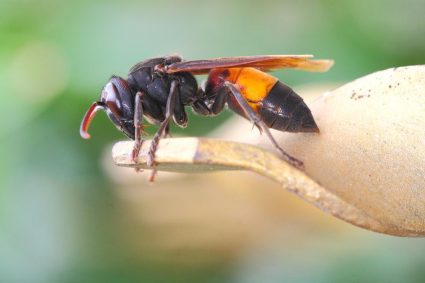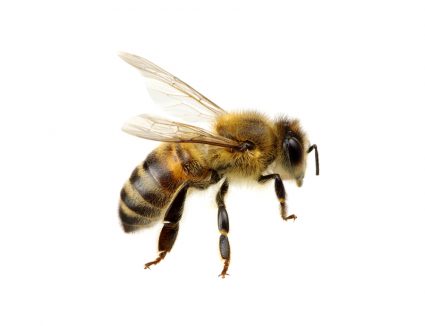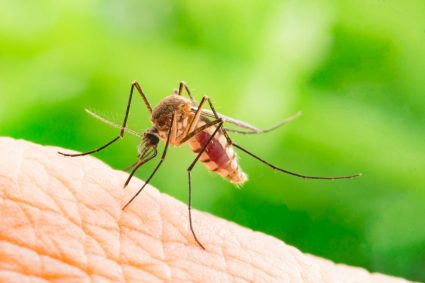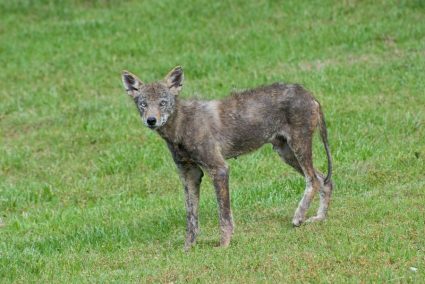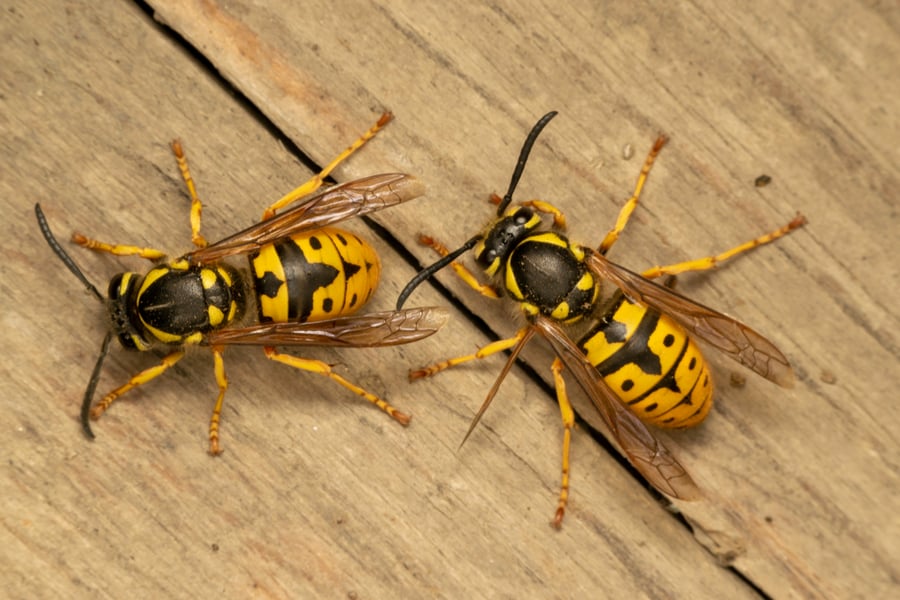
Wasps may bring a few benefits to some, but most people hate encountering them, especially while lounging outside.
Bites from these pests can easily make you feel irritated and anxious with possible infections and the itchiness you may feel.
If you don’t enjoy wasps playing around your garden and invading your plants, don’t worry. You are not alone. Most homeowners also despise wasps that nest on wood while looking for food to devour.
And if you have been looking for the perfect and safe product to spray on wood and keep wasps away, try our top recommendations:
- WD-40
- Detergent and water mixture
- Insecticide
- Lemongrass, clove, and geranium spray mixture
- Spices mixture
Start protecting your wooden materials in your backyard by checking out this article. We’ll also give you extra tips on ensuring these wasps won’t come back.
5 Effective Sprays on Wood
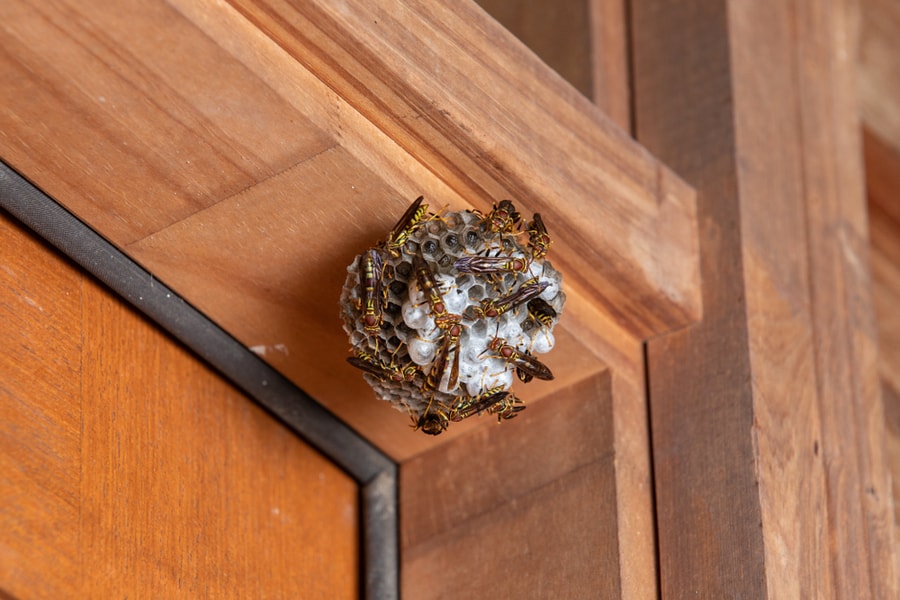
Leaving wasps on wooden materials can lead to a pest-infestation issue, especially when left unattended. And when you don’t do something about it, wasps can be dangerous, especially when you have kids.
Here are five valuable materials you can spray on wood to keep them away:
1. WD-40
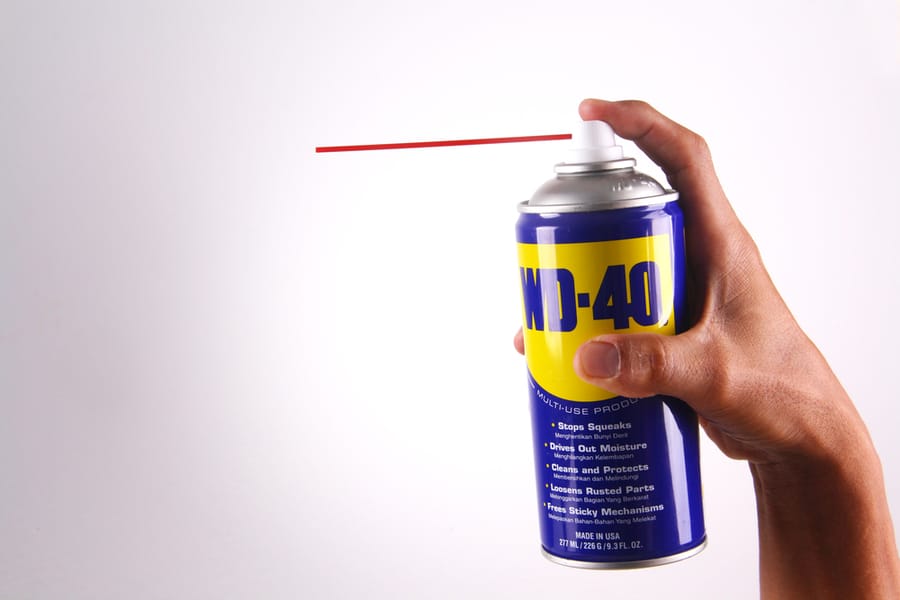
If you are alright with using chemicals, WD-40 should do the trick. But when you use this, ensure your kids are not with you or far away. Also, remember that WD-40 is flammable, so it’s dangerous when you don’t know how it exactly works.
The first thing to do is to get your broom and sweep off any remnants of the wasp nest. You can also throw the old nest in a sealed bag.
Get your WD-40 and spray the area previously occupied by the wasp nest. Also, spray huge amounts of the same material underneath the leaves, on the gutter, and anywhere where wasps can potentially build their nest.
At night, attack active wasp nests by spraying WD-40. It’s better to do this at night because it’s colder, and wasps move slower with cooler temperatures.
It will normally take an hour before all wasps are killed, and wasp nests will be destroyed.
2. Detergent and Water Mixture
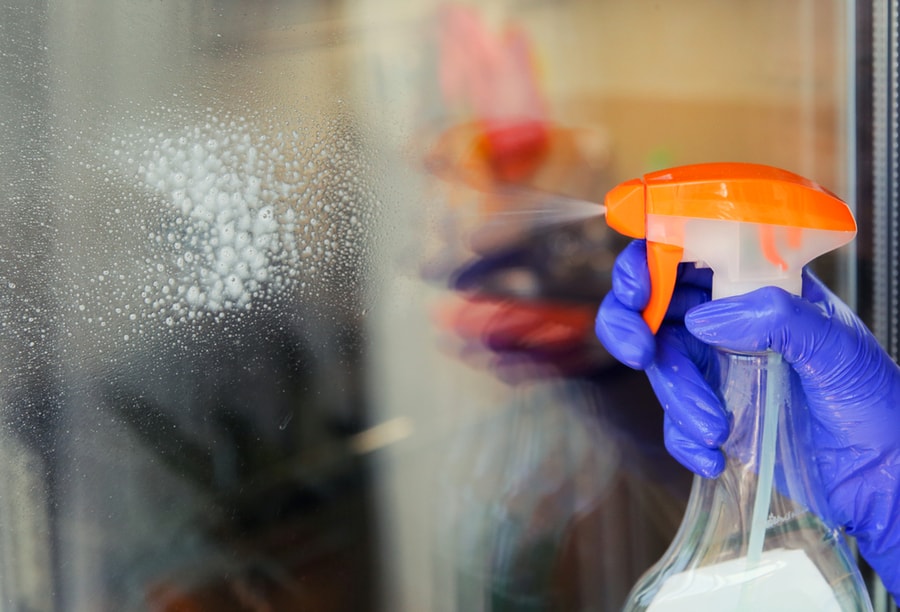
A safer material to spray on wood is mixing your house detergent with water and pour into a spray bottle.
You can deliberately spray this anywhere on wood surfaces potentially nested by wasps.
It’s an eco-friendly and safe option that will not potentially damage the wood.
To make the mixture, mix two tablespoons of any detergent in a spray bottle and dilute it with water.
The soap mixture will clog the wasps’ pores, their breathing mechanism, which will eventually cause them to die.
3. Insecticide
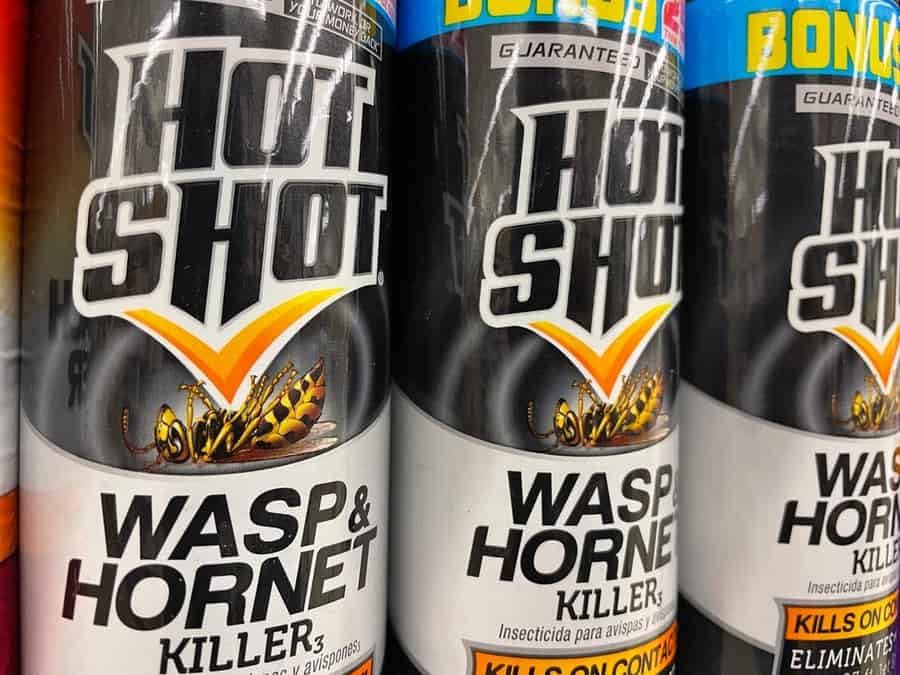
Insecticides can also work. And this is also one of the easiest to choose from because different insecticides are available in the market.
Before spraying the product, always identify the area where you will spray. This means you should be certain of the exact location on the wood where wasps are dominating. Get your insecticide and spray generously on the area.
Insecticides may not directly kill wasps, but their scents can trigger the creatures’ keen sense of smell and disturb them.
However, because insecticides also contain chemicals that can be toxic, you should keep them out of reach from your kids.
4. Lemongrass, Clove, and Geranium Spray Mixture
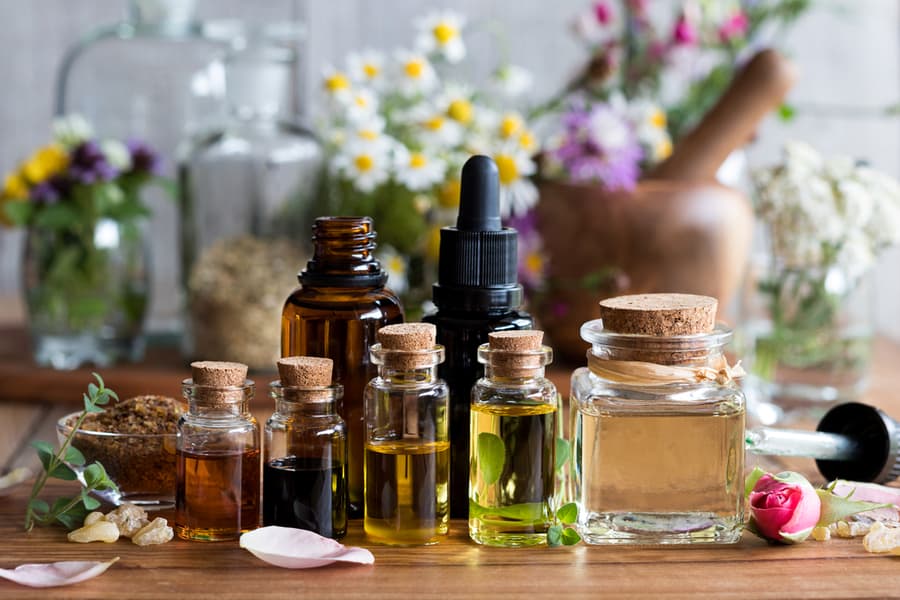
Essential oils and herbs can also work, especially when you mix and match them. You don’t need to have an extensive background in scientific knowledge for this to work.
Moreover, these products already have a strong sense of smell individually. Imagine how they could trigger wasps when you combine them.
Creating the mixture is simple. Get a spray bottle or any plastic container, and fill it with at least 3/4 of water. And then, mix the essential oils you wish to include.
Studies have revealed that some effective ones are lemongrass, geranium, and clove. If you want a more eco-friendly option, try adding peppermint oil too.
Its intense smell and flavor can disrupt your wasps and cause them out of focus. And when they start to feel this, they will likely try to escape.
5. Spices Mixture
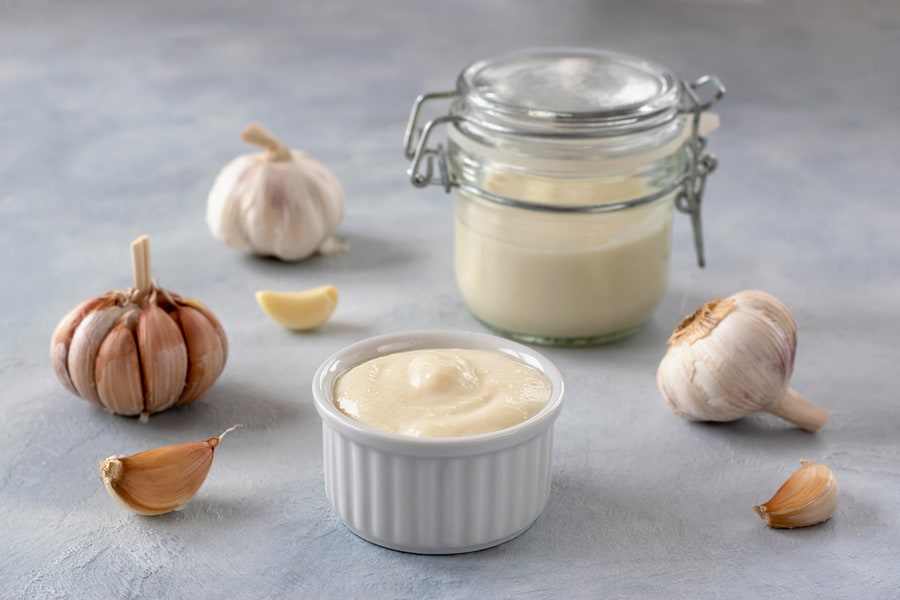
As with other pests, spices are also proven effective in repelling them. So it’s also an ideal option to try mixing spices to keep wasps away.
Mix onion and garlic powder with pepper and pour into a half-filled spray bottle with water. After creating the mixture, spray on corresponding surfaces on wood.
You can also sprinkle a little mixture on active wasps’ nests. This will make it quicker to ward them off.
The Power of Using an Ultrasonic Pest Repeller
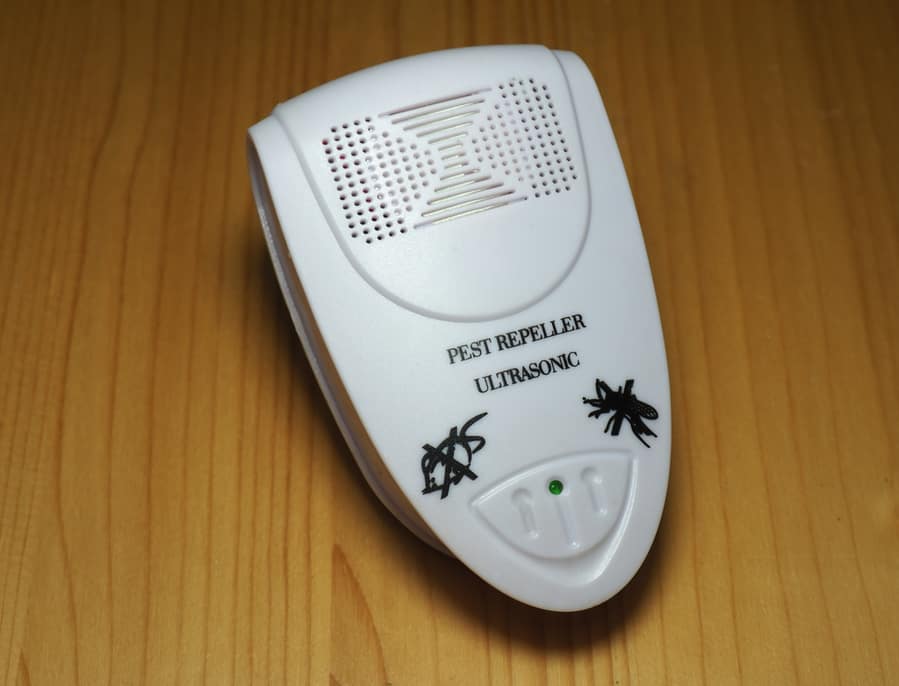
Some homeowners don’t like spraying any product on their wooden surfaces for fear of damaging the surface. It’s understandable. Not to worry, there are other ways to keep wasps away.
One effective way is by using an ultrasonic pest repeller. It does not involve any chemicals or toxic substances you should spray on wood to ward wasps away.
An ultrasonic pest repeller is a gadget that emits sounds with high frequency. The sound disturbs pests and hinders them, causing them to escape and run for their lives.
Don’t worry; sounds emitted from the repeller are almost imperceivable to human ears. Only individuals with a keen sense of hearing can hear them.
Protect Your Wooden Surfaces From Wasps
Wasps can be beneficial, especially to garden lovers. They can pollinate flowers and make your backyard look brighter and more colorful. But on the downside, wasps can also eat wood, damaging the surface, and making you feel more anxious.
To keep wasps away from wood, follow our guide on the best materials you can spray on the surface. They are practical, effective, and cost-friendly.
Frequently Asked Questions
Is Vinegar Effective in Deterring Wasps?
Using vinegar works too. You can pour equal parts of this condiment and water into a spray bottle. Spray generously on the surface, and the mixture will eventually kill wasps.
How Can You Make a Homemade Wasp Spray?
Most wasp sprays on the market contain toxic and active chemicals, and they can also be dangerous to humans, especially when used excessively.



